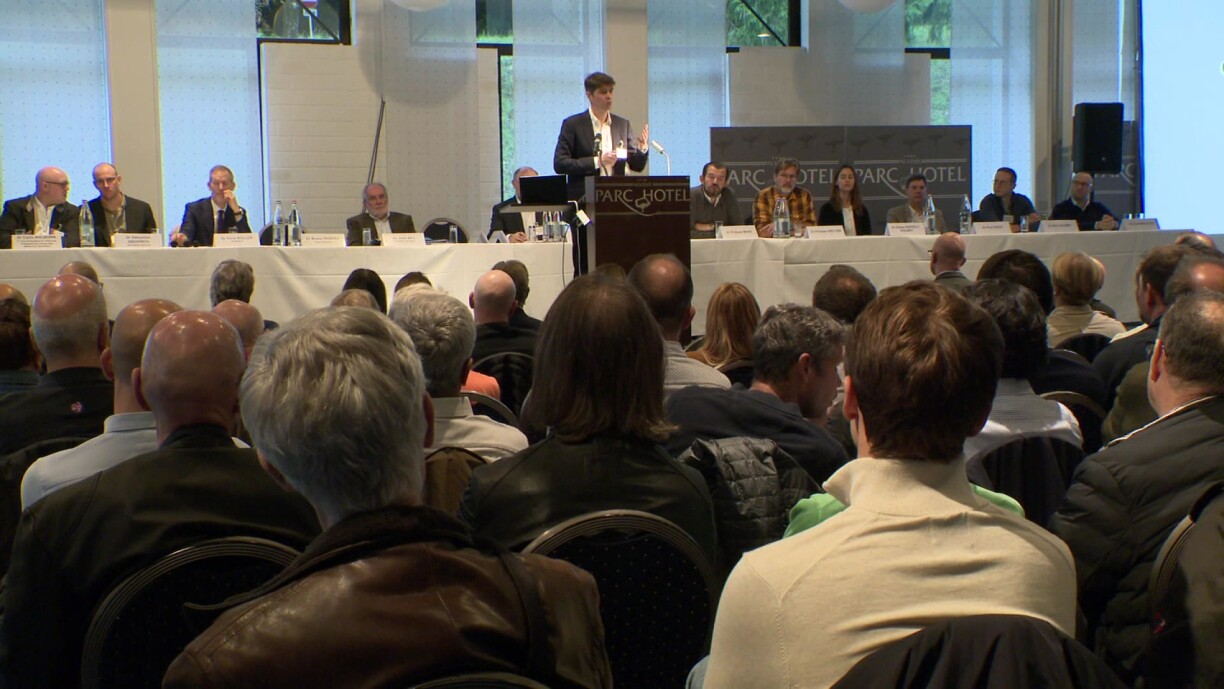
The Association of Doctors and Dentists (AMMD) has announced its intention to terminate its agreement with the National Health Fund (CNS), a move that has caused significant concern within the nation’s healthcare sector. This decision, ratified at an extraordinary general meeting, places pressure on Minister of Health Martine Deprez to provide a satisfactory response to the doctors’ demands.
The timing of the announcement is strategic, coming just days before crucial quadripartite negotiations that will shape the future of healthcare in Luxembourg. The AMMD has stated it now holds a mandate from its members to proceed with terminating the CNS agreement if their concerns are not addressed.
Central to the dispute are calls for rapid reforms to allow greater liberalisation within the medical profession and the expansion of services outside hospitals. A key point of contention is the remuneration offered by the CNS. While hospital staff secured an average annual increase of €2,500 through a collective agreement, office-based doctors demanded an €8,000 upward adjustment to their rates. They rejected the CNS’s counter-offer of €4,000, deeming it insufficient.
In response to the growing dispute, Minister Deprez offered assurances, stating, “We are keeping the promises we made – we will deliver in the coming months.” However, it remains unclear whether this pledge will be seen as the clear signal of support the AMMD is seeking.
The situation has drawn criticism from other sectors. Christophe Knebeler of the Luxembourg Confederation of Christian Trade Unions (LCGB), who sits on the CNS board, warned against fostering “jealousy between the service providers.” He argued that, on an individual basis, doctors would have been “not badly off” financially with the proposed increase and pointed to the CNS’s difficult financial situation. Knebeler emphasised the CNS’s willingness to negotiate, expressing confusion over why the rejected offer has become such a significant point of contention.
While the AMMD maintains that its demands are ultimately in the best interest of patients, the potential termination of the CNS agreement has raised alarms about administrative complications and reduced security for the insured.
Both the LCGB and the CNS have warned that such a move would be highly disruptive. CNS President Christian Oberlé stressed that the fund’s primary role is to ensure security for its members. He explained that the current agreement serves as the practical framework that implements healthcare law. Its termination, he admitted, would create a “suboptimal situation” for patients.
“That is of course a concern for us,” Oberlé stated, adding, “We don’t want anything that doesn’t benefit the insured.”
Should the AMMD follow through, a 12-month transition period would begin, during which services would continue unchanged. However, this period would be dedicated to negotiating a new agreement. If these talks were to fail, the government would be forced to govern the relationship between doctors, patients, and the CNS by grand-ducal decree – a less precise and more rigid system.
This prospect was met with regret by Knebeler. “This is now creating anxiety among the insured, but the CNS is there for the exact opposite,” he said, “Which is why we must deeply regret these announcements.”
Knebeler expressed particular frustration because he believes the AMMD’s broader concerns, such as the development of outpatient care, could be addressed through the proper channels. “Some of the topics the AMMD felt were missing from the rate negotiations [...] could be discussed in the right place during the quadripartite on Monday,” he noted.